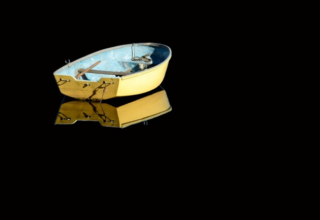
The title “Google-fueled, Wikipedia based, Blog-sodden” is taken from Tom Nichols book entitled “The Death of Expertise”. While this description may be a little over the top, we are living through a period in our history where people are dying (as a result of the Covid pandemic), many of whom could be saved if they followed the advice of medical experts and followed some fairly simple techniques and practices. But, while we may think this is a problem manifested by the pandemic, it is not – the problem of distrusting experts has a long history and numerous causes. This backdrop also has implications for coaching and consultants of all kinds (leadership/executive, life coaching and even sports coaching), where coaches and consultants are often considered experts, or at least deeply experienced. As I discuss in this essay, experts are fallible, and laypeople are often mis-informed or in some cases (as I describe later) blatantly ignorant on certain topics they may weigh in on. Our society (and interactions in the business coaching and consulting world) requires rules and guidelines for more constructive engagement between experts and laypeople.
The Challenge: Where Do We Seek Our Information and What Do We Believe?
As a leadership coach and change management consultant, my advice and consult are ignored from time to time. One case was that of a large utility company that was implementing new technologies that would ultimately impact every household across the state. My consulting advice was to engage, educate and prepare field workers who interact with the public on a daily basis, and could engage the public in an honest and open dialogue about the technology. This advice was largely ignored with the eventual result that there was a huge public backlash against the technology – to some degree fostered by field workers themselves. This led to long delays and massive cost increases. This project was complex, having many stakeholders and numerous unknowns, so my guidance was not absolute. It needed to be debated and various scenarios worked out. Unfortunately, this debate never occurred and senior leaders dictated the plan going forward, which ultimately failed badly.
Being challenged as a so-called expert is healthy and important. Experts are not always right in their judgments. This kind of challenge – or rather debate – is common in academic environments as well as in some medical situations (for example, deciding on a treatment plan for a complex surgery). In these situations, there are processes, rules and practices that allow these debates to occur in a collaborative way and for practical and useful outcomes to emerge. This is not the case in other situations. Often, differences of opinion result in combative discussions, people going to their corners and becoming immovably defensive with no opportunity for solutions.
A crisis in expertise – What are some of the causes?
Being cautious about the guidance of experts is often warranted. Let’s delve into a few examples.
Research demonstrates that the predictions of many experts about the future are often “devastatingly” wrong (Kahneman, 2011). Those with the most knowledge are often the most unreliable. This is because many experts develop the “illusion” of skill and can become over-confident. They develop the so-called “arrogance of over-confidence”. This illusion of expert knowledge and arrogance is not only risky and can provide false hope in challenging social situations, but also makes the process of coaching these expert leaders so much more difficult – the hubris of overconfidence of many experts is a barrier to influencing their behavior and to change. Lay people who blindly follow the directions of experts and leaders without thought or debate, are potentially following the pied piper.
Download Article















